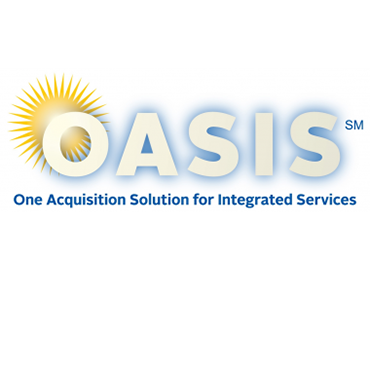GAO denies OASIS protest
The protesting firm, Aljucar, Anvil-Incus & Co., says it will seek redress in the Court of Federal Claims.

The Government Accountability Office has denied an agency-level protest of GSA's $60 billion multiple award services OASIS contract, but the protestor vowed to continue the fight in federal court.
On Jan. 3, GAO struck down complaints made by Aljucar, Anvil-Incus & Co. that the terms of the General Services Administration's request for proposals for its One Acquisition Solution for Integrated Services contract unduly restricted competition by not allowing small companies to team up to bid for services.
GSA split OASIS into two RFPs -- one aimed at small businesses and the other at larger contractors -- to facilitate both markets. When AAI filed its protest this past summer, Rudy Sutherland, the firm's head of practice, told FCW that the contract split essentially excluded smaller bidders from teaming up to participate in the larger contract, which could prove to be more lucrative.
The contracts could be worth as much as $60 billion over the next 10 years. GSA said in December that the response period for OASIS and OASIS Small Business requests for proposal came to a close in November and it expected to award contracts in early 2014. The protest denial could be the last bit of administrative housekeeping before the contracts are awarded.
In the face of the latest ruling, Sutherland told FCW in an email on Jan. 7 that AAI was in the process of filing a request for reconsideration at GAO, but ultimately believes it will file in the Court of Federal Claims. "The risks of joint venturing is controlled by the free-market and by virtue of sound operating agreements, not by the government picking winners and losers,” he said. “Although it may be at their discretion, there is nothing reasonable about the GSA’s position and we believe the [Court of Federal Claims] will indeed find that it does not pass the logical scrutiny test."
The GAO sees things differently.
"The crux of AAI’s protest is that the RFP is unduly restrictive of competition because the solicitation, with respect to joint venture offerors, limits consideration of experience to that of the joint venture itself," GAO General Counsel Susan Poling wrote in the agency’s ruling. "AAI complains that the solicitation does not allow newly-formed joint venture offerors to satisfy the experience requirements through the experience of the individual members of the joint venture."
Poling wrote that GSA's market research showed that companies without a proven track record in a newly formed joint venture can pose dangers for contracts. She cited a past contract protest involving a company named Valor Construction Management that showed it can be reasonable for an agency to limit consideration of experience to the entity that will hold the contract with the government -- the joint venture itself.
"More importantly, AAI’s argument misses the broader principle on which Valor is based, which is that the determination of a contracting agency’s needs, including the selection of evaluation criteria, is primarily within the agency’s discretion, and we will not object to the use of particular evaluation criteria so long as they reasonably relate to the agency’s needs in choosing a contractor that will best serve the government’s interests," she said.
Sutherland countered that the current GAO ruling "seems contrary to certain executive guidance dating back to 2009 from the White House and OMB over standards to be considered in increasing competitiveness" under the JOBS Act, which required multiple awards contract solicitations to get bids from "any responsible source, including small business concerns and teams or joint ventures of small business concerns.”
OASIS already has at least one commitment from the U.S. Air Force. FCW reported in October that the Air Force had moved to embrace OASIS as a procurement vehicle, with the Air Force Space and Missile Systems Center and the Air Force Life Cycle Management Center announcing they would use the contracts to get more than $1 billion worth of systems engineering, technical assistance and other services. The Air Force formally signed a memorandum of understanding to use the contract on Dec. 19.
NEXT STORY: Look for a replay on acquisition reform





